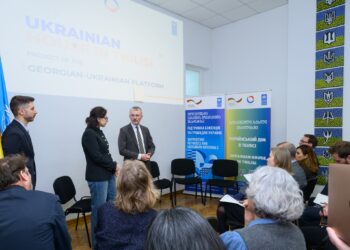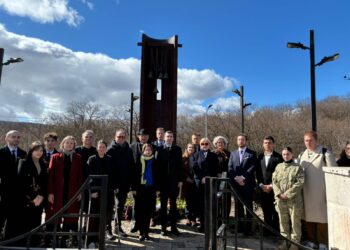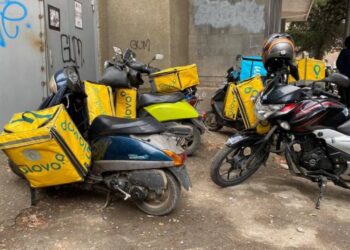At the beginning of 2021, CENN assessed the condition of WaSH (Water, Sanitation and Hygiene), and related responses to the COVID-19 pandemic, in the Akhmeta and Tsalka municipalities.
The main purpose of the assessment was to assess the water and sanitation (WASH) condition and preparedness associated with the Covid-19 pandemic in schools and dispensaries of the Tsalka and Akhmeta municipalities. The evaluation was conducted with the financial support of the Global Water Challenge and the Coca-Cola Foundation (TCCF) as part of the project ‘Community Action to Improve WASH Services in Vulnerable Rural Communities of Georgia.’
“This research is important because access to WASH services is crucial, especially during a pandemic. As a result of the evaluation, we were able to clarify the situation in the schools and dispensaries of those two municipalities,” Levan Gagoshvili, Environmental Project Officer at CENN, told GEORGIA TODAY.
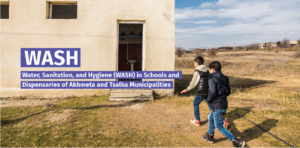
In schools, the study used the Global Child Water, Sanitation and Hygiene Monitoring (WASH) method and the World Health Organization (WHO) Coronavirus Disease Management Guide (COV-19) developed by the United Nations Children’s Fund (UNICEF). Two more documents published by the Ministry of Internally Displaced Persons from the Occupied Territories, Labor, Health, and Social Affairs of Georgia were also studied and practiced:
- “Water, Sanitation, and Hygiene in Schools – National Recommendation for Public Health (Guideline)” approved with the Order of the Minister of IDPs from the Occupied Territories, Labor, Health and Social Affairs of February 6, 2020, №01-40 / o
- “General Recommendations for General Education Institutions Related to New Coronavirus (SARS-CoV-2) Infection (COVID-19)” approved by the Department of Labor Inspection of the Ministry of Internally Displaced Persons from the Occupied Territories, Labor, Health and Social Affairs of Georgia (Appendix # 37) on August 14, 2020

Main findings and recommendations
A prior assessment of water and sanitary-hygienic conditions of public schools and dispensaries of Akhmeta and Tsalka municipalities was conducted in 2018. In general, compared to the previous experiences, in both municipalities, there is real progress in improving and settling the infrastructure. However, in some cases, low quality in the performed work was noticeable. This is particularly relevant to the arrangement of water and sanitation systems in dispensaries. For more details, the findings and recommendations are provided below, individually for schools and dispensaries:
Public schools
- In the schools of Akhmeta and Tsalka municipalities, the most critical problem for WASH was the severe unsanitary conditions in the toilets. This issue has been significantly improved, with updated sanitary facilities in many schools and sanitary norms being correctly observed. Violations in this regard were reported in only a few schools (mainly in villages populated by ethnic minorities located far from the center of the municipality). These changes may be partly due to the COVID-19 pandemic and tighter sanitary regulations; however, the situation has changed significantly for the better, and there is progress in this regard.
- There are still no special hygiene programs in schools. It is true that the COVID-19 pandemic brought the urgency of this issue to the forefront and significantly increased attention; yet, in most of the evaluated schools, the hygiene materials are only devoted to demonstrating the correct hand washing rules related to the pandemic. Further, the majority of the evaluated schools do not have a single teacher who has undergone special training in hygiene. In the presence of such teachers or principals, schools tend to pay much more attention to WASH issues and better observe sanitary-hygienic norms.
- There are no educational programs in schools to promote safe menstrual hygiene for girls. Only in one of the evaluated schools did the doctor mention that they periodically talk to the girls about safe menstrual hygiene and buy the girls sanitary napkins at their own expense, which they give them if necessary. The program of examination and treatment of intestinal worms of students is also very irregular. In many evaluated schools, such inspections have not been managed for years.
Rural dispensaries
- In the case of dispensaries, the relevant government agency needs to develop a separate normative act that will set minimum standards for infrastructure and water sanitation. It should be noted that a number of dispensaries have been renewed in recent years; however, they differ significantly from each other in the arrangement of sanitary facilities. For example, some small clinics (where there is only one room) had separate bathrooms and toilets, while other clinics in the same municipality did not even have working toilets that followed proper sanitation standards.
- Despite work and noticeable progress in recent years, some rural clinics in the target municipalities still do not have the basic requirements for proper patient care. Some buildings are not adapted for people with disabilities, or there is no water and electricity. We can say that primary healthcare services in rural areas are formal, which is also clearly evident by the low referral rate of patients.
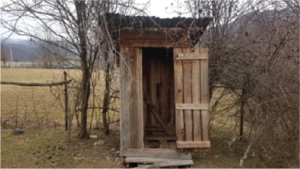
“This study has given us an opportunity to understand the situation in terms of WASH in the target municipalities, and to define the activities and action items that will help us increase access to WASH there in future,” Gagoshvili noted.
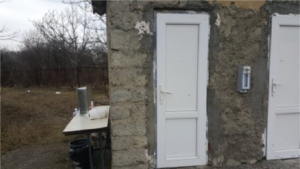
The project ‘Community Action to Improve WASH Services in Vulnerable Rural Communities of Georgia’ has two main directions:
- Implementation of infrastructure projects, large-scale pilot projects, as well as grant competitions (in which initiatives submitted by women and young people are preferred) as, unfortunately, women and young people are considered to be the most vulnerable in terms of access to WASH services;
- Strengthening and informing the local population about WASH standards, through awareness-raising campaigns, regular meetings with stakeholders, the involvement of young people and women, and in the direction of trainings and training courses.
“A separate training course is going to be added for school teachers and healthcare workers, because hygiene trainings in schools clearly haven’t received enough attention, which is especially important in times of a pandemic. As for outpatients, the study found that they did not have adequate information about managing in a post Covid situation,” Gagoshvili told us.
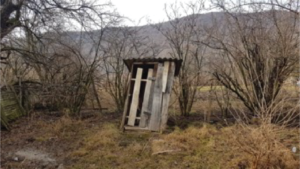
The project ‘Community Action to Improve WASH Services in Vulnerable Rural Communities of Georgia’- is being implemented by CENN within the New World Program (NWP), which is financially supported by the Global Water Challenge and the Coca-Cola Foundation (TCCF).


